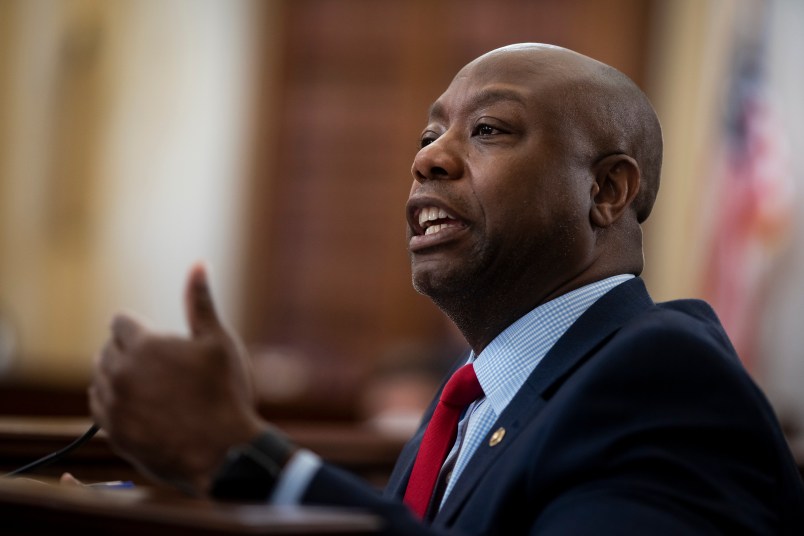Sen. Tim Scott (R-SC) on Sunday warned that limiting qualified immunity for police officers would be a “poison pill” for Republicans as congressional efforts to pass police reform legislation continue in the wake of George Floyd’s death.
Changing qualified immunity, a legal doctrine that shields police officers from being held personally liable for conduct unless they violate “clearly established” constitutional rights, has become a Democratic priority as Congress begins working on legislation aimed at reforming policing.
Scott, who is taking the lead in the GOP-led Senate’s efforts for police reform, said during an interview on CBS’ “Face the Nation” that from the Republican perspective, which includes President Trump, qualified immunity is “off the table.”
“They see that as a poison pill on our side,” Scott said. “We can use the decertification of officers, except for the law enforcement unions say that’s a poison pill.”
Scott added that Congress needs to find path that would help reduce misconduct in law enforcement while getting rid of “any poison pill in legislation” that leads to getting “nothing done.”
“That sends the wrong signal, perhaps the worst signal right now in America,” Scott said. “I think we’re going to have legislation that can be negotiated that gets us to the place where something becomes law that actually makes a difference. That’s got to be our goal.”
Sen. Cory Booker (D-NJ), however, disputed Scott’s claim during his appearance on “Face the Nation” later Sunday, saying that Sen. Mike Braun (R-IN) told him that qualified immunity is “on the table.”
“I know the heart of Tim Scott, and senators like Sen. Braun, who said to me ‘qualified immunity’s on the table,’” Booker said. “We are one body in the United States Senate, and people of good heart and good spirit, regardless of what the President does. He can veto a bill, but we should come forward in this moment in history.”
Last week, House Democrats unveiled a landmark police reform bill that includes banning chokeholds and no-knock warrants in drug cases as a response to nationwide protests calling for widespread changes in police departments across the country.
Watch Scott’s remarks below:



